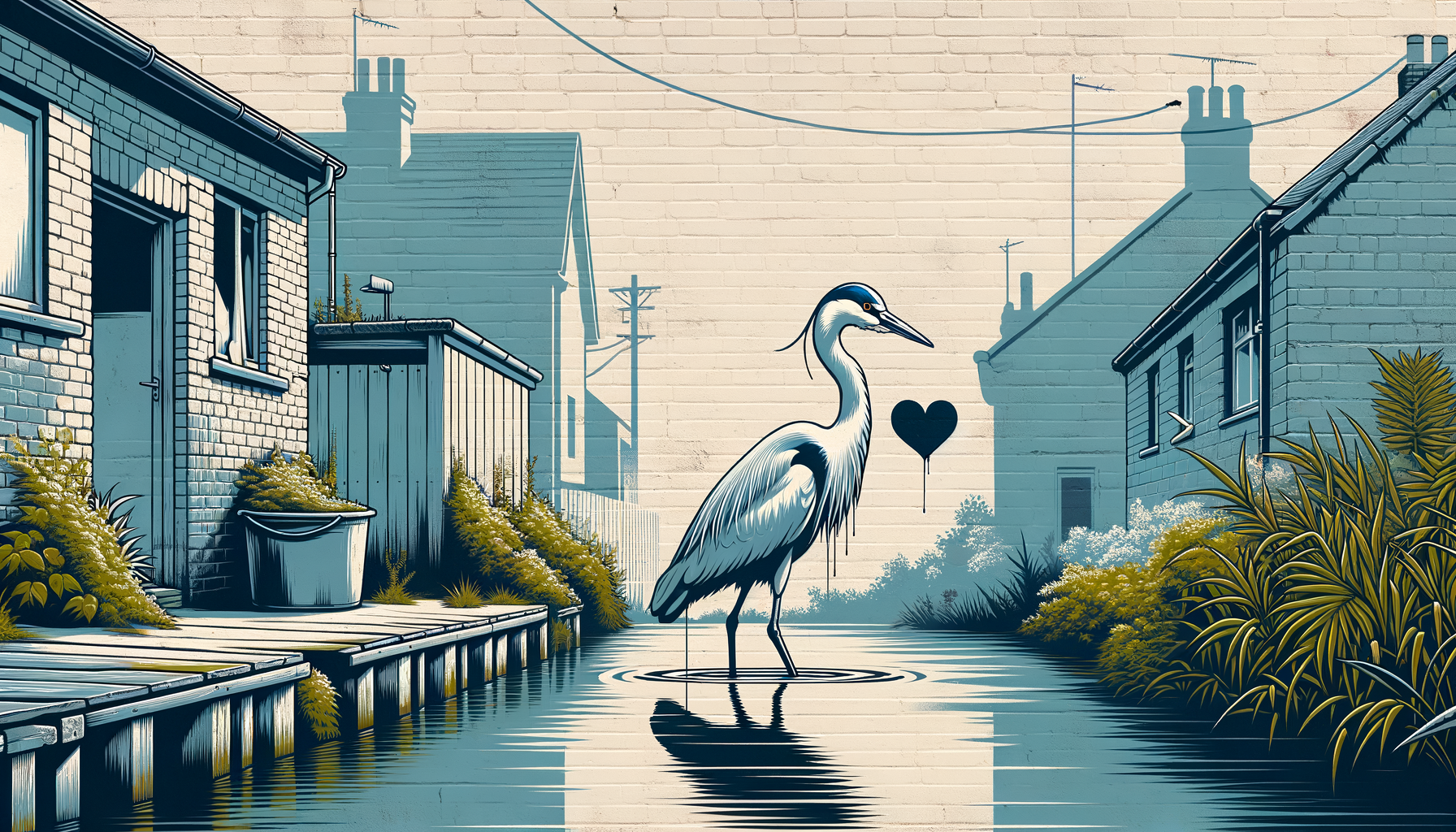How a Book About Herons Taught Me About Love
There’s something magical about falling in love for the first time. Your heart does cartwheels; colors seem brighter; you spend an hour crafting a casual text message that only says, “Cool.” But love, dear reader, also has a way of stomping all over you in hiking boots when things take a turn. I learned this the hard way in my mid-20s, when I spent an entire fall eating canned soup and listening to the saddest Iron & Wine songs on repeat after a breakup. Needless to say, it wasn’t my finest season.
What pulled me out of the Great Sad Soup Spiral of 2012 wasn’t a rebound relationship or a makeover montage. It was a book—a slim, unassuming little tome that taught me more about connection, boundaries, and acceptance than any rom-com ever could. Surprisingly, it wasn’t a self-help bestseller or a steamy romance novel. Nope. It was Refuge: An Unnatural History of Family and Place by Terry Tempest Williams, a book about birds (mostly) and grief.
Let me explain.
Birds Don’t Pretend to Be Penguins
When I first cracked open Refuge, I wasn’t exactly thinking about how pelicans could save my love life. But Williams’ exploration of bird species in the Great Salt Lake struck a strangely familiar chord. In her accounts, each bird had its quirks, habits, and rhythms—herons that waded patiently, avocets with their peculiar feeding dances. Not once did a bird apologize for being what it was. A heron is a heron, tall and awkward, built for stillness and stalking. It doesn’t hunch its shoulders and whisper, “Sorry, I’ll try to act more like a penguin if that’s what you’re into.”
And yet, isn’t that exactly what we do in relationships sometimes? We bend ourselves into versions of “cool” or “chill.” We stuff our nerdy love of tidepools or our penchant for board games deep into our pockets, afraid these parts of ourselves will scare someone away.
That realization stopped me in my tracks. If a bird doesn’t perform emotional acrobatics to win affection, why should I?
It’s funny to think about now, but I started to use herons as my personal dating compass. Were they elegant? Sure. A little gawky? Sure. A heron didn’t worry about whether it “fit in” with ducks or seagulls; it just stood there, looking timeless and slightly annoyed, waiting to catch its dinner. I told myself I’d try to stand in my tall, awkward heron-ness too.
Love Is Like the Tides
There’s a moment in Refuge where Williams writes about the cyclical rise and fall of the Great Salt Lake, how it swells during rainy years and recedes during dry ones. The lake doesn’t cling to its highest watermarks or panic when it shrinks a bit. It ebbs and flows naturally, adapting to the seasons.
At the time, I was clinging harder than barnacles to an emotional “high watermark” in my relationships. I wanted things to stay as they were in the honeymoon phase—thrilling texts, spontaneous road trips, Sunday breakfasts that lasted until dinner. I saw love as a perfect photo op, not a living, changing thing.
But the lake? The lake didn’t cling. It understood ebbing was part of the deal.
Williams taught me what it means to embrace the natural rhythms of relationships. A bond may not always feel euphoric, but moments of peace and stillness are meaningful too. Just as the tides know when to retreat, people in a healthy relationship need to honor their own space—two herons fishing solo but still connected across a body of water.
Accept the Mosquitos (Within Reason)
Here’s the thing no one tells you about nature—or dating: you’re going to run into mosquitos. Sometimes literally, if you’re hiking Acadia National Park in July. Relationships, too, come with their fair share of tiny irritations that show up uninvited. The way your partner chews their cereal could leave you questioning your choices, or maybe their inability to put gas in the car makes you want to stage a TED Talk on responsibility.
In Refuge, Williams describes how even the most pristine landscapes have flaws—muddy banks, biting insects, relentless floods. But she doesn’t dwell on those annoyances. Instead, she highlights the beauty surrounding them, the delicate balance of ecosystems that persist despite chaos.
That clicked for me. When I focus on the small irritations, they balloon out of proportion, overshadowing the good stuff. But stepping back, I saw the whole ecosystem of shared jokes, late-night kitchen dances, and quiet companionable hikes—all the things that made those pesky mosquitos worth tolerating (unless they were metaphorical mosquitos disguised as red flags, of course). Know the difference.
Loss Is a Teacher
At its core, Refuge is a book about loss. Williams writes tenderly about the death of her mother from cancer and the ecological destruction of the Great Salt Lake. It’s heavy but also surprisingly hopeful. Her grief doesn’t smother her; instead, it teaches her to pay closer attention to the fragility of beautiful things.
As much as I hate to admit it, loss has taught me a lot about love. That breakup I referenced earlier—the one with the canned soup era of my life—was my first real heartbreak. At the time, I thought I’d never recover from the gut-punch of watching something I cared about fade away. But looking back, I see how that heartbreak made me more intentional. It snapped me out of autopilot and made me better at appreciating the small joys in my relationships while they were here.
Williams gave me permission to let go gracefully. Just as she mourned the lake’s vanishing waters but still marveled at the sunsets, I learned to honor the good parts of what I had, even as I moved on.
Lessons from a Heron
It’s been years since I first read Refuge, but pieces of it still surface in my mind whenever I catch sight of a wading heron or feel the tides of a relationship shift. In a world that often pushes us toward grand romantic gestures and viral-worthy love stories, this little book reminded me that it’s okay to stand still sometimes and just notice. To honor ebbs and flows, welcome quiet moments, and embrace my quirks without apology.
Love, like nature, can be breathtakingly beautiful. But the messy parts—loss and mosquitos and stumbling over your own lanky heron legs—make it worth writing about. So, the next time you find yourself heart-deep in a new romance (or even heartbroken for a while), consider taking a page from the tides or the birds or even Terry Tempest Williams. There’s a wild wisdom to it all, and trust me—it’s more reliable than any dating app algorithm.




















